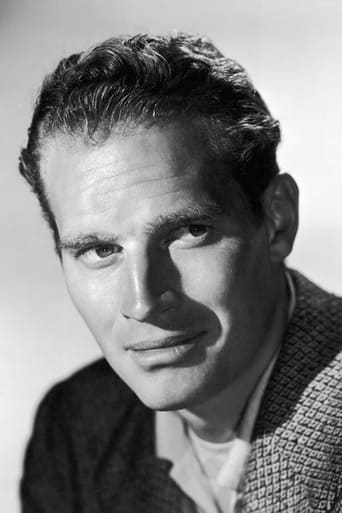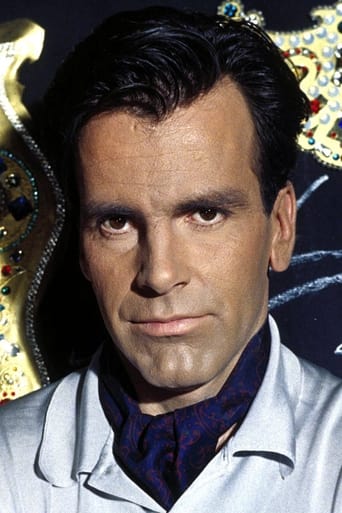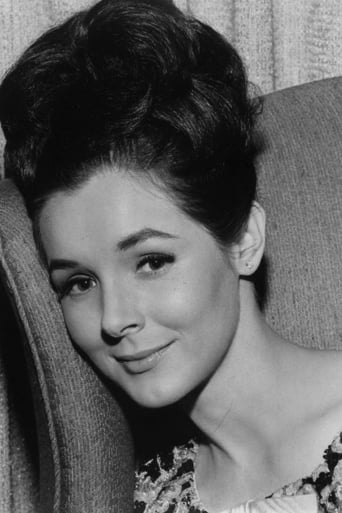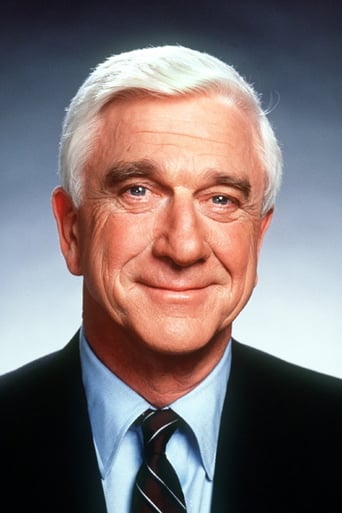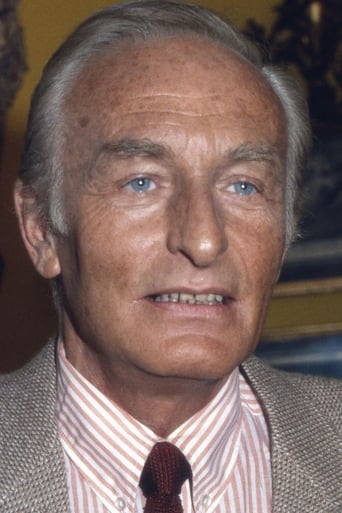Karry
Best movie of this year hands down!
ReaderKenka
Let's be realistic.
TaryBiggBall
It was OK. I don't see why everyone loves it so much. It wasn't very smart or deep or well-directed.
Bluebell Alcock
Ok... Let's be honest. It cannot be the best movie but is quite enjoyable. The movie has the potential to develop a great plot for future movies
broomy22313
I saw "Counterpoint" back in 1968 at a local cinema in the Midwest, and I liked it so much I went back the next night and watched it again. I was especially captivated by the acting, the offbeat plot, and the wonderful music. I've not seen it again in forty years . . . until last night, when I was finally able to watch it on DVD. The film is superb. It portrays a psychological tug-of-war between brilliant classical conductor Heston and the great Maximilian Schell, playing another of his patented Nazis who has other dimensions to him besides just being a brutal Nazi. It's during the Battle of the Bulge, and Schell is conflicted in that he loves music while at the same time he must obey orders and practice the routine cruelties of war. His love of music demands that maestro Heston (whom through a quirk of fate he's captured, along with an entire USO orchestra, behind enemy lines) play for him, wanting "something Wagnerian perhaps..." To which the stubborn Heston counters, "categorically, no Wagner." It's mostly about an egocentric, pampered and pompous musician who refuses to play because he realizes that once he does, he and his entire orchestra will be shot (along with two US soldiers who have been trapped in the same net) and a military authoritarian who craves a private, full-orchestra performance just to indulge his sense of art. In reality, both men are uncompromising martinets who demand perfection and absolute obedience to their will. But, as has been pointed out, things are made even more interesting in that there's (a) a traitor in the orchestra; (b) a relationship between Heston and a married female cellist; and (c) an SS officer (perennial Nazi Anton Diffring) who wants to wipe them all out. The plot is similar to the Vanessa Redgrave film "Playing for Time," but with fascinating twists - such as here it is NOT playing that enables Heston and his people to buy time. The music is extraordinary, the setting (an old bombed-out castle) intriguing, the atmosphere foreboding, and the acting - especially the interplay between Heston and Schell - a treat. The "counterpoint" (you've probably by now figured out the pun in the title) between him and Schell is in some ways reminiscent of the relationship Heston had with Olivier in "Khartoum," only a bit nastier and missing the religious overtones. Leslie Nielsen and Kathryn Hays are also interesting and quite convincing as members of the star-crossed triangle. The scenes are all very well written; and the music alone is worth the film. As with my first viewing forty years ago, I've watched it now twice in the past 24 hours, and I'm adding it to my list of Heston's and Schell's best, most essential roles. Odd that Universal never put it out on either VHS or DVD, and that even some of Heston's most ardent fans don't know of its existence. I'm an unabashed Heston AND Maximilian Schell fan. And if you like Schell, you won't be disappointed, since, as one of the other reviewers mentions, the film captures perfectly his charm, private enigma, and charismatic sex appeal. He's one of those delightfully complex Nazis you hate to love; yes, he's a cynical and brutal soldier in service to Hitler and the evil Reich, but his performance makes it impossible not to feel a bit of sympathy for him. His finer instincts also make him a philosopher and music lover, and one gets the feeling that, were it not for the arbitrary lot time and place has dealt him, he would have been someone very similar to Heston - an egoistic, authoritarian professor of music at Berlin University perhaps? But he's been given his orders - kill all prisoners - and he must play the part of an obedient general. Or will he ?? Here one must see the film to its finish, which is not exactly unsatisfying, emotionally speaking. While the plot is definitely offbeat, that's precisely the beauty of it. A riveting film, to say the least. I bought it from ioffer.com for $9.99. The quality of the transfer is middling (the sound is marginal, and the color is so washed out at times I thought I was watching a black-and-white film!); but it's almost impossible to find, so I can't really quibble. This is one little gem I'd love to see restored onto DVD with full surround stereo sound. COME ON, UNIVERSAL, GET WITH IT! An absolute MUST for Heston and Schell admirers - not to mention lovers of classical music.
silverscreen888
This is perhaps not a great movie; but as many viewers have attested over the years, it is a very memorable attempt at entertainment. The context of this dramatic film is WWII. People do strange things in wartime, I suggest; but once one accepts the physical presence of a fine orchestra led by a pompous but talented man in harm's way, where he can be coveted, captured and coerced by a civilized Nazi officer and menaced by an SS type, everything else falls into place. The other elements in the plot about an orchestra leader "not playing, for time" to save the lives of his orchestra's members and two US soldiers who have been caught in the same zone with no escape are these: a traitor in the orchestra; a relationship between the leader and a cellist; his relations with her husband, his concertmaster, the SS officer's desire to exterminate them, and the desire of the Nazi captor to have them play something just for him in the midst of wartime--these are unusual attributes for a 'war film, I assert. Those who missed the main point of the film, that the ethics of emergencies are different than those of normative times, thus missed why the movie was made. There are examples, in history such as "Playing For Time": for instance, of musicians and Jewish ones and females being kept alive to play for Nazi officers; the clever part here is that writers James Lee and Joel Oliansky 'fictionalized' the idea by providing interesting additions to the basic situation, which are: the aforementioned affair, the danger that brings out the characters more strongly, the need NOT to play, and the additional element of a traitor in their midst, the two US types and the often-used but effective distinction between civilized Germans serving Hitler's Nazi war'machine' and SS types enjoying their unlimited power to do harm to anyone they single out during that war. The change in the leader's character during the film is that he must remain true to himself and also prioritize what he does for the good of the group, no easy task. And the music is wonderful, the atmosphere so good even naysayers have remarked on it. As to the acting, it is far better than the mumbling and often ludicrous submediocrity that has characterized Hollywood unprofessionalism since 1973. The film was directed by Ralph Nelson. The good cast included Charlton Heston as the monomaniacal maestro, Maximilian Schell and Anton Diffrimf as the German contestants for the lives of the orchestra's members, Leslie Nielse and Kathryn hays as the other members of the love triangle, plus Neva Patterson, Cyril Delevanti, Gregory Morton, Parley Baer, Ed Peck, Peter Masterson, Curt Lowens and many more. Original music for the film was composed by Bronislau Kaper; cinematography was done by Russell Metty. Art direction was done by Carl Anderson and Alexander Golitzen, set decoration by John McCarthy Jr. and George Milo with costumes by Burton Miller The film is well-=aced, the dialogue above average, many scenes well-thought out; and the music alone is worth the price of admission. Anyone who does not enjoy this film and believe in its essential logic is perhaps an opponent of realistic behavior, actions that consist of dealing with the unusual sometimes, and with something other than rock-and-roll level cardboard types characterized by what is wrong with them and not by anything higher. Worth seeing more than once.
danfcon
Let me qualify those 7 stars. You have to like Heston, Schell, WWII movies, and classical music in order to appreciate this movie. Heston is the conductor of an orchestra that is caught behind German lines during the Battle of the Bulge. Schell is a Prussian style educated yet cultured officer who is caught between his appreciation for culture and his orders not to delay the battle by wasting time on taking prisoners. The orchestra is USO. A side conflict is provided by the orchestra taking in 2 GIs who are also cut off behind enemy lines and hiding them as members of the orchestra. This is a war, "small w", movie. I remember a lot of grimacing from Heston and Schell, but that is what they do! Look beyond the cardboard characters and you may find a good little picture about a protagonist and an antagonist playing chess without a board.
npiazza1
Although this movie got bad reviews and, as another member commented, was "absurd", I enjoyed the movie and am sorry that it has never been released on VHS or DVD. I would sure like to get a copy. One never even sees it on television any more so it could be taped. I guess I'm just a sentimentalist at heart, but the idea of going through the motions of putting on a concert for the Nazis to delay the SS execution of the group appealed to me. And when that soldier (I forget who the actor was), pretending to be a member of the band, played "The Star Spangled Banner", I was brought to tears. If any member knows where I could get a copy of this movie on VHS or DVD, I would appreciate an email.

